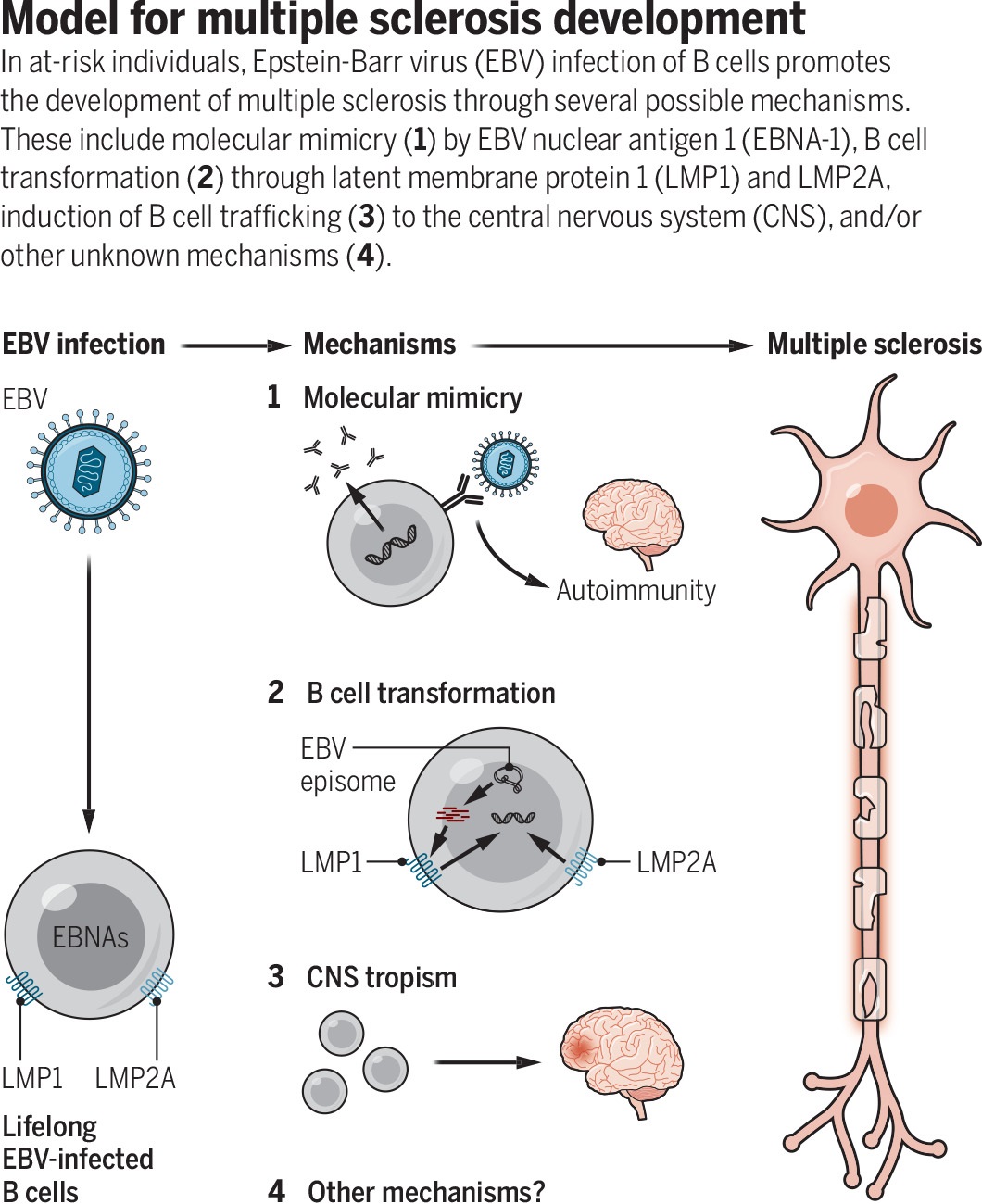In their study, published Thursday in Science, the group examined data from 10 million people on active duty in the United States Armed Forces over two decades. The strength of their study, said its principal investigator, Dr. Alberto Ascherio, an epidemiologist at the Harvard T.H. Chan School of Public Health, is that they were able to follow people for years and ask whether infections with Epstein-Barr preceded multiple sclerosis.
At the same time, the virus in question, Epstein-Barr, is common, infecting nearly everyone in the population at some point. Although few are aware that they were infected, some develop mononucleosis. The virus remains in the body for life.
Because so few who are infected with the virus get multiple sclerosis, it cannot be the sole cause of the disease. Other risk factors have been identified, including some, like low levels of vitamin D and smoking, that were seen previously by the Harvard group using the same data set. There also are genetic factors — 900 abnormal genes have been identified in patients with multiple sclerosis, said Dr. Anthony J. Reder, a multiple sclerosis expert at the University of Chicago, who was not involved in the new study. Gender also plays a role; most patients are women.
But, Dr. Ascherio said, no risk factor stands out like Epstein-Barr infections.
Gina Kolata
Another example of an endemic virus likely triggering debilitating diseases over the long term – just as some HPV strains are responsible for nearly all cervical cancer cases. One has to wonder what sort of medical complications current coronavirus infections will cause 5 to 10 years from now. Already studies point to conditions varying from increased risk of diabetes in children, to neurological symptoms similar to those who’ve undergone treatment for cancer following even a mild SARS-CoV-2 infection, to worsening mobility and physical function in people older than 50, to increased vascular damage resulting in blood clots and strokes. How so many latched onto this narrative that the current Omicron variant is somehow ‘mild’ and it’s OK that everyone will get infected is truly irresponsible.

Post a Comment